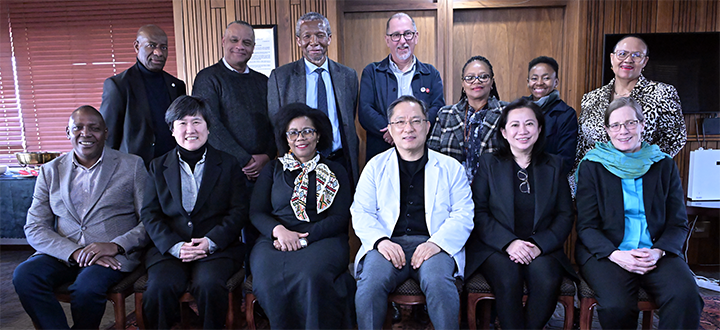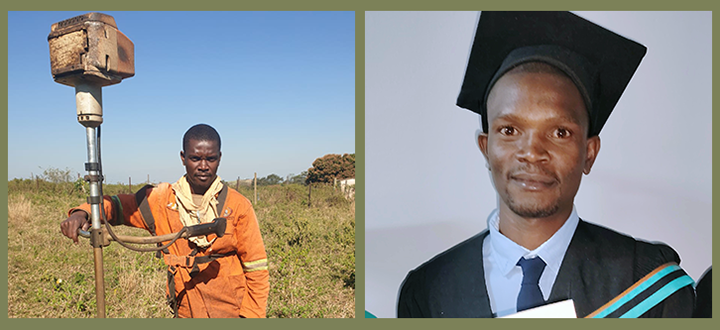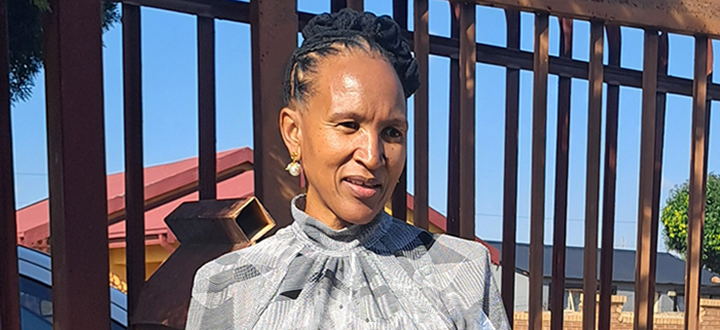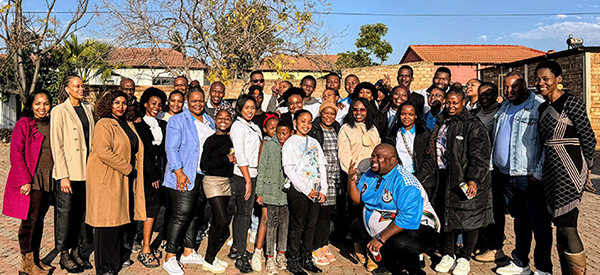College of Human Sciences
Assisting disadvantaged learners and students during the Covid-19 crisis

Dr Fortunate Silinda says government, higher education and business need to work together in addressing matters of inequality in disadvantaged communities.
President Cyril Ramaphosa’s imposition of a national lockdown on 26 March 2020 in response to the Covid-19 pandemic has thrown our country and its institutions into disarray, and both basic and higher education have not been spared.
South Africa’s education system is entrenched in the country’s legacy of apartheid, but the Covid-19 pandemic has made matters worse, with learners and students in poor and rural communities most badly affected.
The pandemic is increasingly widening existing inequality gaps between learners from poor rural and wealthy urban areas, as well as those who are situated somewhere in between. Poverty and children heading homes are some of the factors that affect education of learners from disadvantaged areas.
Statistics South Africa reported that one in five children do not live with either of their biological parents. Also, 11,7% of children were orphaned because of losing one or more parents.
It is worth noting that parents play an important role in children’s emotional and cognitive development.
So, for those children who do not live with either of their parents, teachers in school assume the role of helping them with their emotional and mental development.
Using Maslow’s hierarchy of needs, we can better understand how learners may have conflicting needs, such as access to food, water and shelter, and emotional nurturing, which could interfere with their learning needs.
For some learners, access to learning infrastructure, such as the internet, television and radio may be a luxury because of affordability challenges. A choice often has to be made between acquiring data to access the internet and buying electricity units and food.
Of course, it is not as if the government has been unaware of these challenges and has not taken steps to try and address them.
It, for example, implemented the National School Nutrition Programme in 1994, and, to date, about nine million children in 23 675 public schools across South Africa have been provided with daily meals.
With the Covid-19 pandemic lockdown the government has started distributing food relief parcels, but the majority of vulnerable children’s circumstances have been exacerbated well beyond the government’s plans and readiness.
The lockdown raises many such concerns, which were powerfully brought home for me during an interaction I have recently had with one of the school principals in Bushbuckridge during a community outreach visit I conducted as part of a foundation I established.
The principal told me that he provides support to all his learners even when schools are closed because he is aware that many of them only have one meal a day, provided by the nutrition programme.
Bushbuckridge, in Mpumalanga, is a peri-urban area which does not exactly conform to stereotypes of what either a rural or an urban South African settlement is supposed to look like.
There are small villages scattered around the area as well as more formal suburban neighbourhoods, interspaced with more fully rural communities.
In terms of socio-economic class it also reflects much of the diversity of South African society, and the same goes for 'ethnicity' and language.
Overall, the area is marked by a sense of economic struggles. There are difficulties in accessing work, internet, educational opportunities and healthcare.
These challenges can be blamed on the racial-based spatial policies of the apartheid regime. The regime placed such African communities on the outskirts of the city and provided them with less infrastructure.
This is precisely that sort of area, on the periphery of urban South Africa and last in line when it comes to resource provision.
Bushbuckridge is precisely where the historical inequalities of our society are rendered most visible by crises such as the Covid-19 pandemic.
In dealing with the challenges of the pandemic, it is tempting for all concerned to ignore this legacy and to focus on easy solutions.
I count the provision of online classes among the easy solutions. This can only benefit learners who already have good internet connection, support from well-educated parents and access to teachers who are able to reach out to them through the internet.
However, the learners who are most in need of support are precisely those for whom such support is difficult to provide.
This is where the government, universities and businesses should focus their efforts.
Just because a challenge is difficult does not mean that it is insurmountable or that we should shirk our responsibilities by focusing on easy challenges.
The Covid-19 crisis and its impact on education provides an opportunity for government, universities and businesses to pay attention to learners in non-urban communities such as Bushbuckridge and to other communities that are now even more disadvantaged than before the crisis.
Disadvantaged as they may be, such communities are not without resources. What is needed is for government, universities and business to coordinate and link together the available resources and to mobilise additional resources where necessary.
These efforts will address the learning needs of learners from such areas by providing them with meaningful education which can help them gain knowledge they can use in their post-secondary education.
Research has shown that learners from disadvantaged schools experience challenges to adjust to the requirements of post-secondary education.
In response to this, universities and other tertiary institutions should consider partnering with schools in the development of a standard curriculum that will help learners transition from high school to university.
The departments of Psychology at universities could have a particularly important role to play, firstly by using this opportunity to ensure that psychological services are accessible and relevant to rural communities to address their local realities and needs.
This would also encourage the advancement of an African psychology, grounded in the experiences of South African communities.
For good reason, South African universities are trying to transform their curricula to speak more directly to our circumstances as Africans, in the context of post-colonial society.
Engaging with the educational needs of learners in areas such as Bushbuckridge is sure to enhance and enrich this transformation process.
The Covid-19 pandemic provides an opportunity for all stakeholders to work together in addressing matters of inequality in disadvantaged communities.
This is what needed to happen in areas such as Bushbuckridge long before the Covid-19 pandemic came along, and it is now needed more than ever!
* By Dr Fortunate Silinda, Chair of the Department of Psychology, College of Human Sciences, Unisa & Founder: Winning Youth Foundation.
This article is written in her personal capacity.
Publish date: 2020-07-08 00:00:00.0


 Unisa wins bid to host IAMS General Assembly
Unisa wins bid to host IAMS General Assembly
 Cutting grass by day, pursuing Unisa studies by night
Cutting grass by day, pursuing Unisa studies by night
 Unisan’s research set to improve accident records management through AI
Unisan’s research set to improve accident records management through AI
 Koma e wetse: When tradition meets the harsh realities of modern livelihoods
Koma e wetse: When tradition meets the harsh realities of modern livelihoods
 Imbizo inspires youth
Imbizo inspires youth